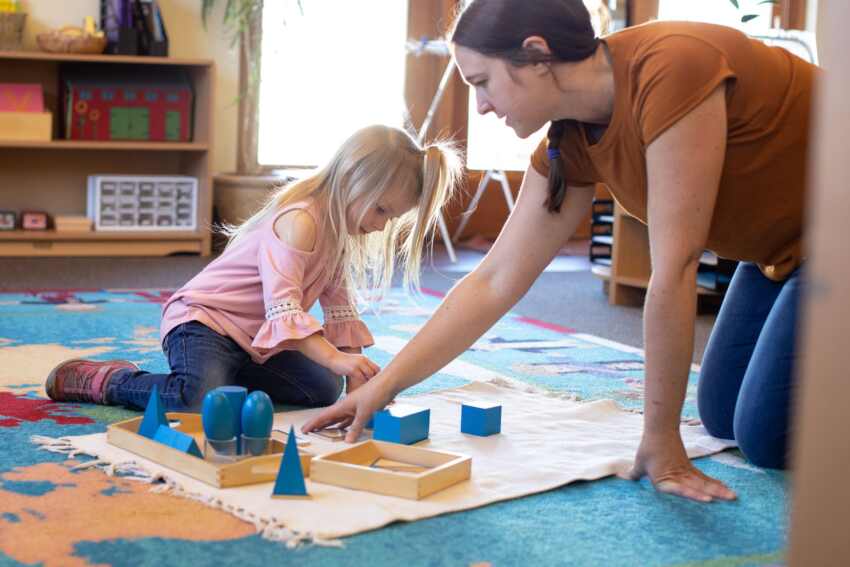Breaking Down Measurement: Montessori Tools That Empower Children’s Mastery
In Montessori education, children are encouraged to learn through hands-on experiences and exploration. They are provided with a range of Montessori tools that help them develop and master different skills. When it comes to measurement, Montessori materials play a crucial role in empowering children to understand and apply various concepts of measurement.
Introducing Measurement in Montessori Education
Montessori education believes in introducing concepts gradually, with concrete materials that children can manipulate and visually understand. This approach also applies to measurement where children first learn about length, followed by width, height, weight, volume, and time.
The Montessori Measurement Tools
Montessori measurement materials are specifically designed to provide children with a hands-on learning experience. They help children to develop a deep understanding of measurement concepts, encourage exploration, and support independent thinking.
1. Ruler
A ruler is one of the first tools introduced to children in Montessori education. It helps them to understand the concept of length and how to measure objects. Children are encouraged to measure objects around the classroom or home, comparing and categorizing them based on their length.
2. Measuring Cups and Spoons
Measuring cups and spoons are used to introduce the concept of volume and capacity. Children learn about different quantities and how to measure liquids and solids accurately. This hands-on experience enables them to develop a better understanding of measurement and estimation.
3. Balance Scale
A balance scale is a tool that children use to understand weight and learn to compare the heaviness or lightness of objects. They explore the concept of balance and how weight affects equilibrium. This tool helps them to develop mathematical and problem-solving skills while grasping measurement concepts.
4. Sandpaper Letters and Numbers
Sandpaper letters and numbers provide a tactile experience for children to explore and understand the concept of width and height. They trace the letters and numbers with their fingers, feeling the difference in width and height. This activity enhances their sensory perception and prepares them for later mathematical concepts.
5. Clock
A clock is used to introduce the concept of time and help children grasp the passage of time. They learn how to read analog and digital clocks, understand the concept of hours, minutes, and seconds, and develop a sense of time management. The clock not only teaches them about time measurement but also helps them develop a sense of routine and organization.
The Benefits of Montessori Measurement Tools
The use of Montessori measurement tools in education offers several benefits for children:
-
- Hands-on experience: Children learn best through hands-on experiences, and Montessori tools provide them with tangible materials to explore measurement concepts.
-
- Sense of independence: The tools allow children to work independently, promoting a sense of ownership and self-confidence in their learning process.
-
- Concrete understanding: By using physical materials, children can better understand abstract measurement concepts, such as length, weight, and time.
-
- Experiential learning: Children have the opportunity to directly engage with the materials and actively participate in their learning process.
-
- Practical application: The measurement tools prepare children for real-life situations where measurement skills are essential, such as in cooking or DIY projects.
Montessori measurement tools play a vital role in empowering children to master measurement concepts. These materials provide a rich learning experience that fosters independence, hands-on exploration, and a practical understanding of measurement. By incorporating Montessori measurement tools into the learning process, educators can ensure that children develop a solid foundation in measurement that will serve them well throughout their lives.
Nidhin
For More Details Call: +917510220582
